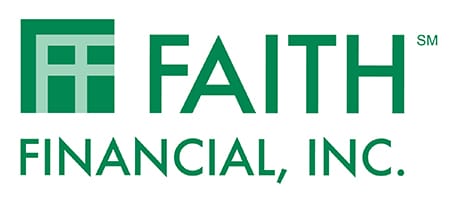What is an ‘Individual Retirement Account – IRA’
An individual retirement account is an investing tool individuals use to earn and earmark funds for retirement savings. There are several types of IRAs as of 2018: traditional IRAs, Roth IRAs, SIMPLE IRAs and SEP IRAs. Sometimes referred to as individual retirement arrangements, IRAs can consist of a range of financial products such as stocks, bonds or mutual funds.
Roth IRA Conversion Review
If you have existing retirement assets in a traditional IRA, you may want to consider converting those assets to a Roth IRA. Possible benefits of converting include tax-free distributions at retirement, no required minimum distributions at age 70 ½, and leaving income tax-free assets to your heirs in the event of your death.
While Roth conversions are not subject to early distribution penalties, they are subject to income tax.
Any earnings distributed prior to age 59 1/2 would be subject to penalty and tax.
Your tax-free potential is maximized if you pay the taxes from your current income or personal savings, not your IRA. Make sure you have the cash to pay the taxes required to convert to a Roth IRA.
Assets converted to a Roth IRA must be invested for at least five years before taking distributions or a significant income tax penalty may apply.
For tax years starting in 2010, the $100,000 modified AGI limit for conversions to Roth IRAs is eliminated and married tax payers filing a separate return can now convert amounts to a Roth IRA.
What is a ‘401(k) Plan’
A 401(k) plan is a qualified employer-sponsored retirement plan that eligible employees may make salary-deferral contributions to on a post-tax and/or pretax basis. Employers offering a 401(k) plan may make matching or non-elective contributions to the plan on behalf of eligible employees and may also add a profit-sharing feature to the plan. Earnings in a 401(k) plan accrue on a tax-deferred basis.
How It Works
Employee 401k contributions are automatically deducted from their paycheck each pay period. This money is taken out before the employees’ paycheck is taxed. The contributions are invested at the employees’ direction into one or more funds provided in the plan. Employers often “match” employee contributions, but are not required to do so. While the investments grow in the employees’ 401k account, they do not pay any taxes on it.
FAQs
What are the differences between a 401K and an IRA?
Traditional IRAs, Roth IRAs and 401(k) plans are effective ways to save for retirement. They do have some differences though, so which one you should use for retirement depends on your situation.
When employers want to give employees a way to save for retirement, they may offer a 401(k), a retirement plan outlined in IRS tax code section 401(k). They may also offer employees a SEP IRA or, if the company has fewer than 101 employees, a SIMPLE IRA. Individuals can open a Roth or traditional IRA separately from an employer, but a 401(k) can only be obtained when offered by an employer. For those who are self-employed, as the owner of the company, they can offer themselves a 401(k) plan.
Do 401k contributions reduce AGI and/or MAGI?
Traditional 401(k) contributions effectively reduce both adjusted gross income (AGI) and modified adjusted gross income (MAGI). Participants are able to defer a portion of their salaries and claim tax deductions for that year. A Roth 401(k), similarly to a Roth IRA, is funded through after-tax dollars and offers no immediate tax deduction.
Is my IRA or Roth IRA FDIC-Insured?
The Federal Deposit Insurance Corporation, or FDIC, is a government-run agency that provides protection against losses if a bank or savings and loan association fails. Created in 1933, the FDIC’s original mission was to offer peace of mind to banking customers after the financial disaster and crash of the stock market that took place in 1929.
While the coverage itself has changed over time, the FDIC has remained true to its initial objective in keeping banking customers safe from losing money in deposit accounts, up to $250,000 per account in most cases today. As of 2018, the FDIC covers customer deposits held at FDIC-insured banks or savings and loan associations, including assets held in savings, checking, money market, certificates of deposit and IRA accounts. However, not all traditional IRA or Roth IRA accounts are treated in the same manner under FDIC protection.




















